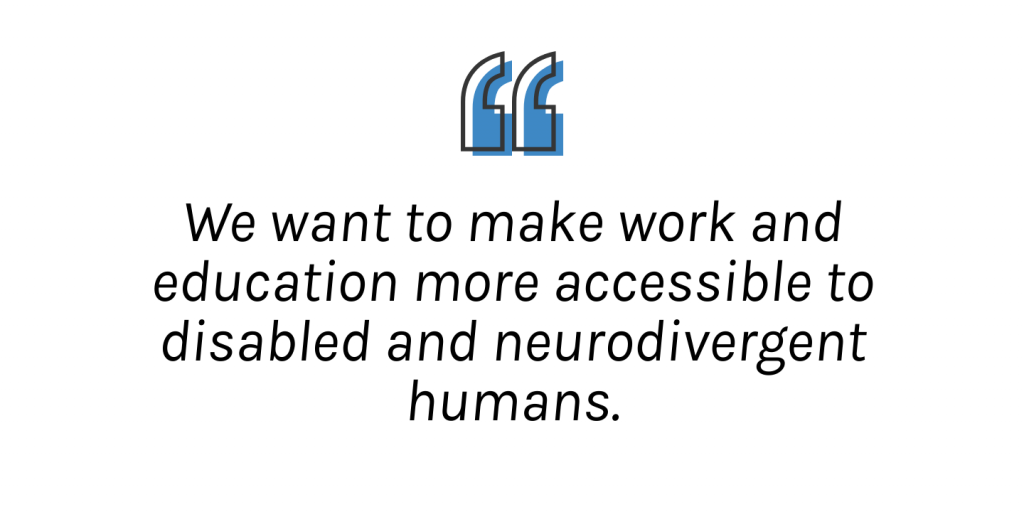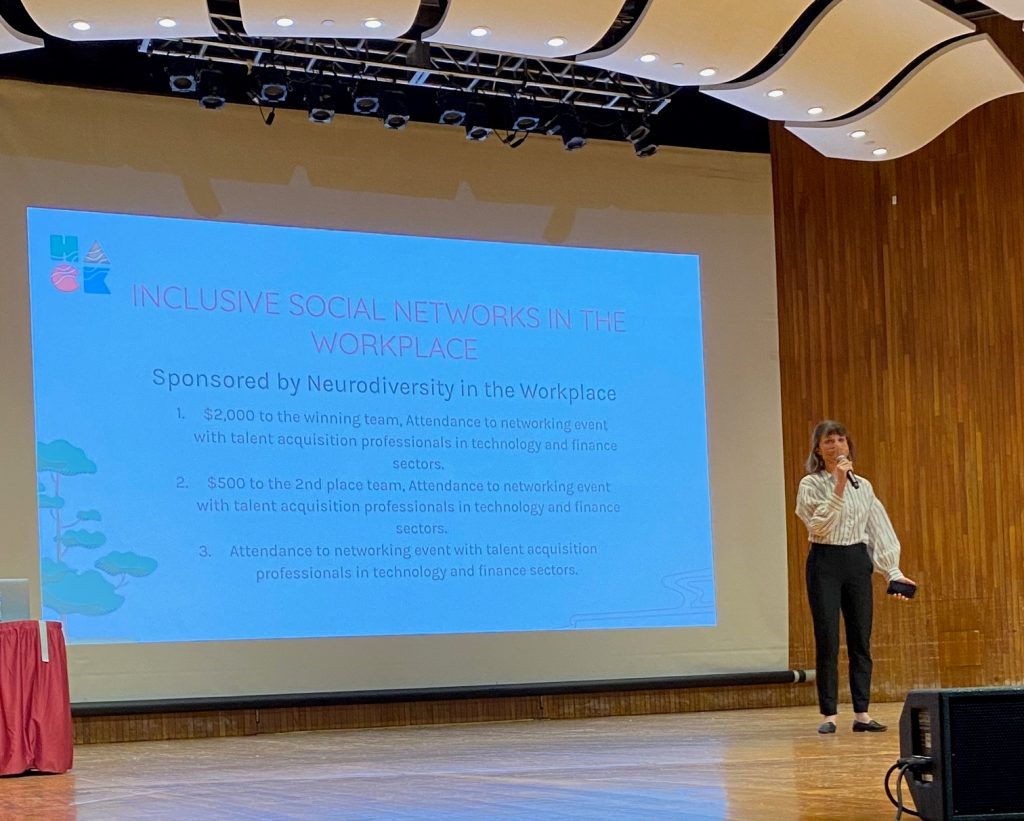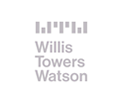
Phaedra: A Winning Idea to Make Work and School Neuro-inclusive
Q & A with our 1st place HackMIT team
Meet Team Kodkod: Carlos Pinto, Alen Rubilar, Sebastián Torrealba, and Noah Buccolini Sutovsky. A neurodiverse group of students, they joined HackMIT remotely from locales across Chile. This was their first hackathon—and they managed to win first prize in the Neurodiversity in the Workplace (NITW) challenge.
Team Kodkod’s tech solution is called Phaedra, “the inclusive reading assistant.” The software summarizes texts, distills key concepts, and allows users to ask questions or request supporting visuals, powered by AI. While aimed at intellectually disabled and neurodivergent individuals, Phaedra seeks to revolutionize the way we all consume knowledge.

NITW judges loved the simplicity of the concept and its wide applicability. We thought about ADHD and dyslexic minds that may have difficulty with dense texts, some autistic people who struggle with aspects of reading comprehension, and so on. We saw a potentially transformative impact in Phaedra’s goal to allow everyone to process information, and fill in gaps, in the ways that work best for them.
The bottom line, per Team Kodkod? “We want to make work and education more accessible to disabled and neurodivergent humans.”
Read on for the interview and stay tuned for updates as Phaedra development continues. (Note: Click here to learn more about HackMIT.)
NITW: Can you tell us more about what Phaedra does?
Team Kodkod: Phaedra generates knowledge that aims to modernize the way we learn and communicate. It uses AI for natural language processing, to extract the meaning. Phaedra is not only for neurodivergent and disabled people but can also be used to increase performance throughout the workplace.
Say you’re reading a paper to learn about a new technology to incorporate into your work—you could use Phaedra to dissect the paper, not only to read and gain knowledge but to ask questions. But it doesn’t have to be a paper. It can be a novel. You can ask technical questions or ask about what happens with a character.
Phaedra also uses external sources of information—currently it pulls from Wikipedia. The idea is to use the global net of knowledge to extract relationships and show interesting content, in your preferred form, related to what you’re reading.
NITW: What inspired you to create a solution to benefit disabled and neurodivergent people?
Noah of Team Kodkod: I’m the only diagnosed neurodivergent person in the group but we all have this feeling of wanting to help if possible. Making way for neurodivergent people to be more included is a way to improve all of our society.
We had already been thinking about solutions with AI that we were fascinated with. We were curious about using it for text analysis. Then we thought, “Hey, maybe we could use it to support the disabled.”
NITW: What problem does Phaedra address?
Team Kodkod: We think that Phaedra addresses the lack of accessibility of today’s learning and communication standards.
NITW: What is your hope in terms of how Phaedra will improve people’s lives?
Team Kodkod: We believe that this may be the gateway to a better understanding of how learning can work in different ways for different people, and how different neurotypes can get new ways to aid them in their knowledge.
It’s about giving new ways to obtain information, with different formats—and that it’s okay. We hope this will help eliminate the ableism that expects everyone to work exactly the same.

NITW: What do you see as the pitfalls of AI when it comes to neurodiversity inclusion?
Team Kodkod: With respect to neurodiversity and inclusion, we were very conscious of how bias could transfer in our project. With face recognition in early days, people of color had trouble because white people’s faces were used to train the model. So the model had trouble recognizing people of color.
In short, bias is in the data quality. The model must be trained and for that we need data. A model will only be as good as the data while training and learning. We thought we could approach neurodiversity inclusion from this natural language processing angle to avoid the bias issue.
NITW: What is the potential of AI in promoting neurodiversity inclusion?
Team Kodkod: Models are getting smarter every day. We all know that, but in particular AI is getting better at tasks traditionally done by humans. For tasks designed by and for neurotypical people, we can use AI to give neurodivergent people the tools they need in place of the mainstream modes of communication.
In short, we can use smarter and smarter models to empower neurodiverse people to find their place in today’s society.
NITW: Will you develop this solution further and if so, what are your goals for it?
[Note: At this point in the interview, Alen of Team Kodkod provided a quick demo of the Phaedra prototype using a technical paper on bitcoin, explaining that the PDF was processed by backend Google servers. An answer came back quickly on a question about the paper’s content. Alen pointed out that you could use Phaedra to generate the content for a presentation on the paper. You could ask for Wikipedia suggestions, ask for an image or any additional representation—to capture the main concepts behind bitcoin.]
Team Kodkod: We will make it more intuitive. The current version supports screen readers to make it even more accessible to more people including the visually impaired. We planned it for everyone we could think of. We want to incorporate as many accessibility features as possible.
We can use the tool to allow us to see a word in context to see what it means, to give a more accurate answer. It’s in Phaedra’s core, implemented in the back end. Currently it’s very manual but in the future we will make it automatic. We have the capabilities and means to make it so you don’t even have to request—Phaedra will learn what is helpful to pull.
NITW: You said you plan to make this project open source. Why is that?
Team Kodkod: The real question is, “Why not?” If we look backwards in the history of computing, tech today is possible from past contributions. So we want to get that technology out there.We want to encourage open collaboration and we believe such a tool [Phaedra] should be freely available to everyone.
NITW: So this was your first hackathon experience. Did you enjoy it, what did you learn from it, and would you do it again?
Team Kodkod: Yes, this was our first hackathon, 24 hours of frenetic developing and coding. We had one of the longest Discord calls ever, 30 hours!
As our first-time experience, we learned the importance of taking breaks. At 6am, we were all tired after coding 18 hours straight, so we were making mistakes in the code. We realized we have to take breaks to be productive.
Given that we weren't together physically, effective communication was key so we had to really be, not just talking, but listening, being aware of what everyone else was doing.
Also, the day of the hackathon was a holiday in Chile, a historical day. We had to miss out from being with our families and at the parties. We learned that sometimes you have to sacrifice some stuff, but you also have to find a balance.
We had fun and would love to do it again.
RESOURCES FOR:
"At first we had a narrow view of what kind of jobs made sense. Now there are neurodivergent people in all areas of the business."
Our Partners












neu-ro-di-ver-si-ty
The wide range of brain differences that naturally occur in the human population, resulting in varied cognitive, social, and behavioral traits. Neurodiversity encompasses all types of brains, from neurotypical to neurodivergent.
